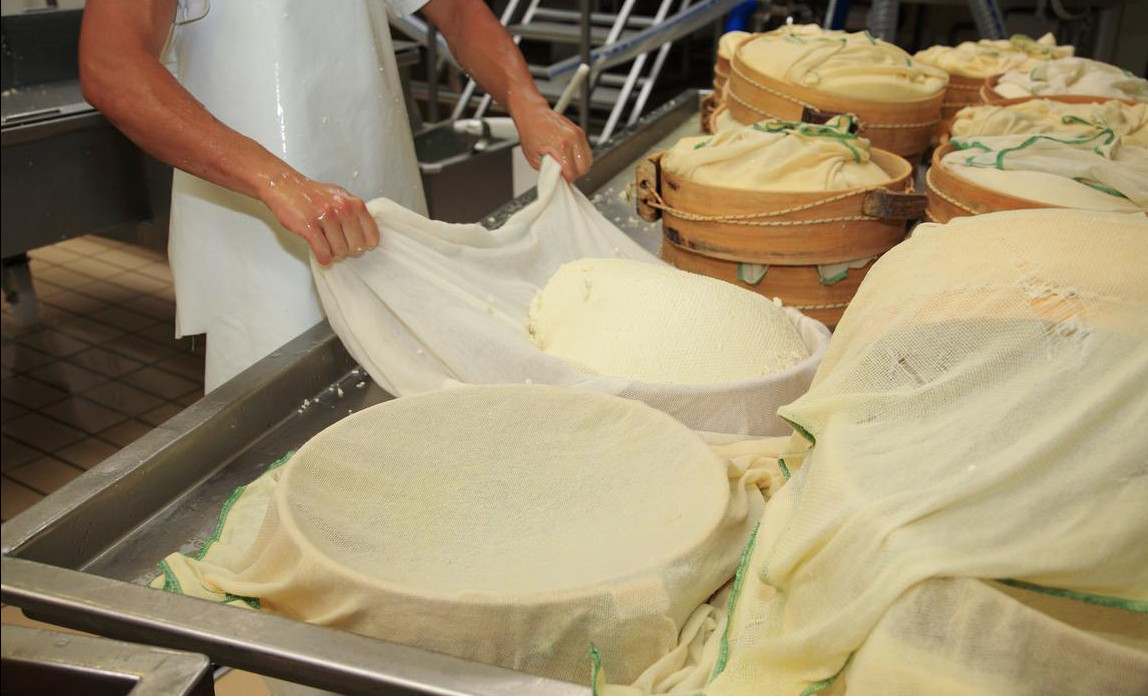Cheese Store Melbourne: Your Best Location for All Things Cheese
Cheese Store Melbourne: Your Best Location for All Things Cheese
Blog Article
A Thorough Check Out Cheese Manufacturing: Components, Approaches, and the Future of Artisan Cheeses
The detailed process of cheese production is a fascinating merging of art and science, where high-grade milk, rennet, and specific microbial societies serve as foundational components. As the industry progressively focuses on sustainability and transparency, the future of artisan cheeses guarantees to mirror both heritage and progress.
Secret Active Ingredients in Cheese Production
A variety of important active ingredients play a pivotal function in cheese production, each adding to the end product's flavor, structure, and personality. The key ingredient in cheese is milk, which can come from different sources, consisting of cows, goats, and lamb - cheese makers melbourne. The sort of milk used significantly influences the cheese's preference and uniformity; for example, cow's milk generally generates creamier cheeses, while goat's milk typically generates appetizing varieties
One more crucial ingredient is rennet, an enzyme utilized to curdle the milk, separating it into curds and whey. The source of rennet can be animal, vegetable, or microbial, each imparting distinctive features to the cheese.
Salt not only enhances the taste however likewise acts as a chemical, hindering the growth of unfavorable germs. Additionally, various flavor agents, such as herbs, seasonings, or also smoked wood, can be contributed to produce unique artisanal cheeses. With each other, these ingredients form the structure of cheese production, establishing the stage for diverse and rich cheese ranges.
Traditional Cheese-Making Strategies
Using traditional cheese-making strategies, artisans around the globe maintain time-honored approaches that have been given with generations. These techniques typically emphasize using top notch, locally sourced milk, which is main to the one-of-a-kind tastes and textures of artisanal cheeses. The procedure usually starts with the cautious heating of milk, complied with by the addition of societies and rennet to help with coagulation.
When the curds create, they are cut, enabling whey to drain pipes, an essential step that influences moisture content and texture. Salting is a vital aspect of this procedure, enhancing taste while also acting as a chemical.
Aging, or affinage, is one more essential part, during which cheeses establish their characteristic scents and tastes. Craftsmens might employ details maturing settings, making use of humidity and temperature level controls to improve celebrity's account. The commitment to these conventional methods not only sustains neighborhood economies yet additionally adds to the abundant diversity of cheese ranges discovered internationally, commemorating cultural heritage and artisanal workmanship.
Modern Advancements in Cheese Production
Just how have technological advancements transformed cheese production in recent years? The assimilation of contemporary innovation has actually reinvented both the performance and high quality of cheese manufacturing.
Additionally, innovations in microbiology have enabled cheesemakers to choose specific bacterial societies and enzymes, optimizing taste accounts and boosting service life. The use of sensor technology for keeping track of fermentation problems has actually additionally ended up being widespread, enabling real-time changes to keep ideal environments for cheese aging.

These innovations not only enhance the top quality and sustainability of cheese production however also encourage artisan producers to keep typical tastes while accepting modern performance. As innovation continues to develop, the future of cheese manufacturing looks encouraging, blending tradition with development.
The Role of Terroir in Cheese
In the world of cheese manufacturing, terroir plays a crucial function in specifying the unique characteristics of different cheeses. Terroir, a French term traditionally connected find more info with red wine, incorporates the environmental variables that affect farming products, consisting of soil make-up, climate, and regional vegetation and fauna. In cheese-making, the unique qualities of the region where the milk is sourced can impart details flavors and appearances to the last item.
As an example, the grazing problems of dairy products animals dramatically affect the milk's structure, influenced by the sorts of lawns and herbs offered in a certain place. This varies not just in between countries however additionally in between areas within the very same nation. In addition, the microbial neighborhoods existing in the setting contribute to the fermentation procedures, resulting in varied accounts Extra resources in taste and aroma.
Cheeses such as Roquefort, Parmigiano-Reggiano, and Cheddar exemplify just how terroir can shape their identities, making them distinct and frequently secured by geographical signs. As manufacturers increasingly acknowledge the relevance of terroir, there is an expanding focus on sourcing local ingredients and maintaining traditional methods, guaranteeing that each cheese really shows its beginning.

Future Trends in Craftsmen Cheeses
A significant shift is occurring in the artisan cheese market, driven by developing customer preferences and technical improvements. Increasingly, consumers are being attracted towards special, premium products that highlight both sustainability and local sourcing - cheese shop melbourne. This fad is motivating artisan cheesemakers to introduce, focusing on small-batch production and making use of standard techniques while integrating modern-day innovation to improve high quality and security
Additionally, there is an expanding rate of interest in plant-based and alternate dairy items, pushing conventional cheesemakers to check out brand-new opportunities, such as cashew or almond-based cheeses. This change not just accommodates dietary restrictions yet additionally aligns with environmental concerns regarding animal agriculture.
Additionally, openness in sourcing and production procedures is coming to be vital. Customers are much more educated and demand traceability, triggering manufacturers to adopt more clear labeling techniques and involve in narration that highlights their approaches and worths.
Conclusion
Finally, the elaborate process of cheese production melds typical view methods with contemporary advancements, causing a diverse array of tastes and structures. The emphasis on top notch ingredients and the impact of terroir highlight the artistry involved in cheese production. As the industry advances, a concentrate on sustainability and transparency will likely form the future of artisan cheeses, accommodating a progressively discerning consumer base that values authenticity and craftsmanship in dairy products.
Report this page